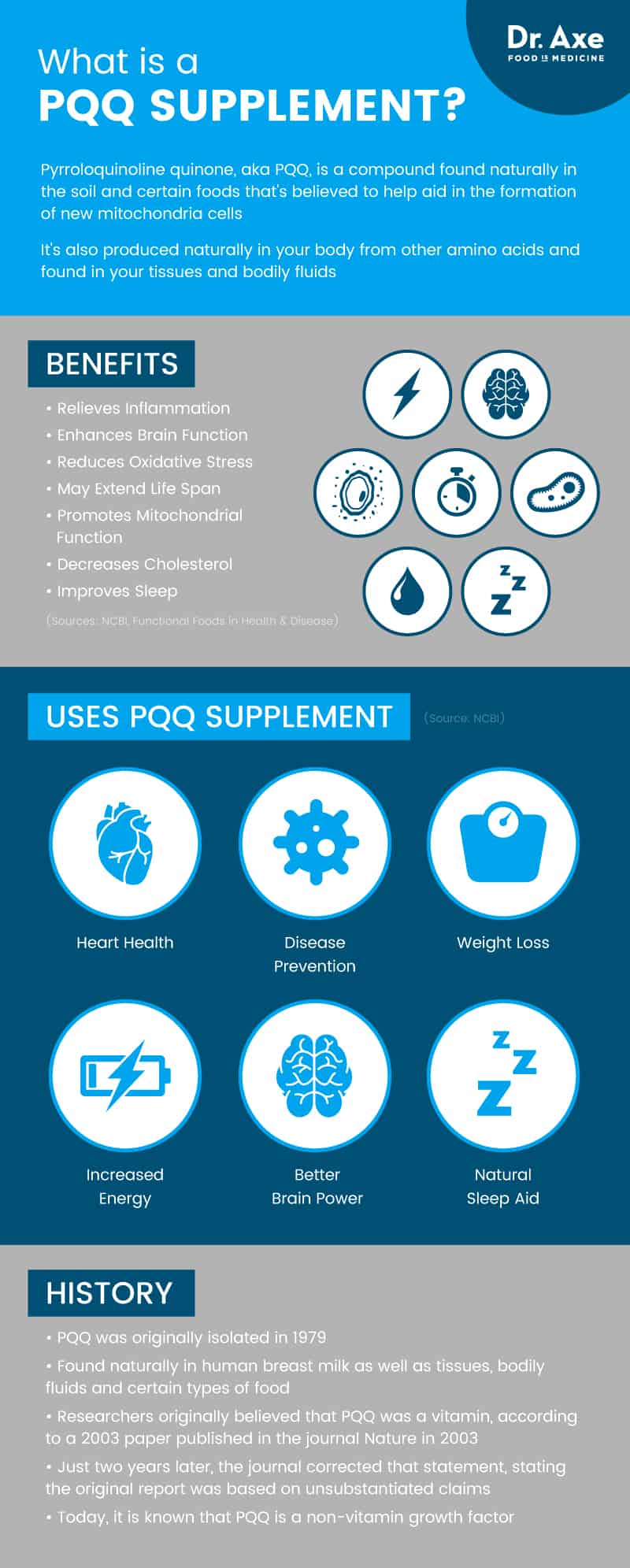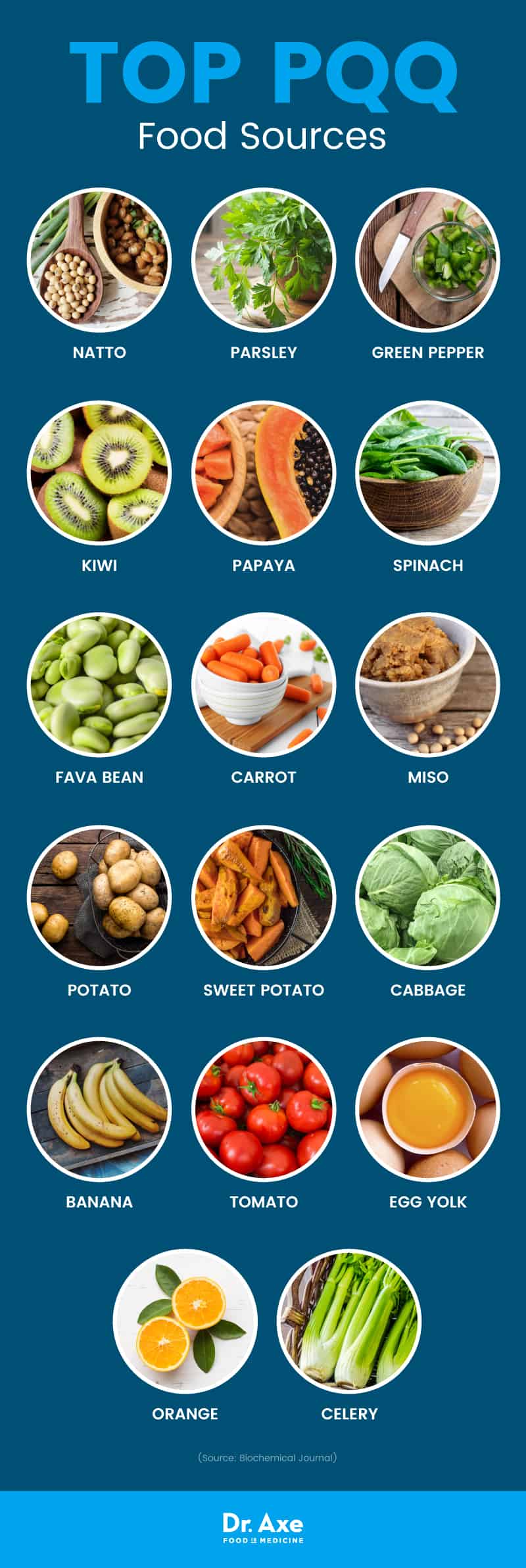This Dr. Axe content is medically reviewed or fact checked to ensure factually accurate information.
With strict editorial sourcing guidelines, we only link to academic research institutions, reputable media sites and, when research is available, medically peer-reviewed studies. Note that the numbers in parentheses (1, 2, etc.) are clickable links to these studies.
The information in our articles is NOT intended to replace a one-on-one relationship with a qualified health care professional and is not intended as medical advice.
This article is based on scientific evidence, written by experts and fact checked by our trained editorial staff. Note that the numbers in parentheses (1, 2, etc.) are clickable links to medically peer-reviewed studies.
Our team includes licensed nutritionists and dietitians, certified health education specialists, as well as certified strength and conditioning specialists, personal trainers and corrective exercise specialists. Our team aims to be not only thorough with its research, but also objective and unbiased.
The information in our articles is NOT intended to replace a one-on-one relationship with a qualified health care professional and is not intended as medical advice.
PQQ Supplement: Brain-Boosting, Life-Extending Benefits
March 27, 2018

Tiny but incredibly potent, most people are completely unaware of the existence of the PQQ supplement, let alone the myriad of health benefits that it can provide. Besides bumping up energy levels, preliminary research suggests that this compound could also aid in disease prevention, reduce oxidative stress and even act as a natural sleep aid.
Available at health stores and pharmacies across the globe in supplement form, PQQ can also be found in right on your plate in some of the foods you may already regularly enjoy.
Here’s what you need to know about this health-promoting compound, plus how you can get more of it in your diet.
What Is PQQ and What Does It Do?
Pyrroloquinoline quinone, also known as PQQ, is a compound found naturally in the soil and certain foods that is believed to help aid in the formation of new mitochondria cells. It’s also produced naturally in your body from other amino acids and found in your tissues and bodily fluids.
PQQ can bring some serious benefits when it comes to your energy, as the mitochondria acts as the battery of the cell and is responsible for generating power. In fact, you can often find PQQ and CoQ10 combined in supplements that are aimed at amping up energy levels and extending the life span.
PQQ also has antioxidant properties, and taking a PQQ supplement is believed to help reduce inflammation, boost brain power and even lower cholesterol levels — as well as provide a host of other powerful health benefits.
Benefits
1. Relieves Inflammation
Acute inflammation is a normal response by the immune system that helps fight off foreign invaders and reduce the risk of infection. Chronic inflammation, on the other hand, can have a detrimental effect on health. In fact, it’s believed that inflammation is at the root of disease and may contribute to chronic conditions like cancer, heart disease and diabetes. (1)
PQQ has antioxidant properties that can help neutralize harmful free radicals to prevent cell damage and inflammation. In fact, research published in the Journal of Nutritional Biochemistry showed that PQQ supplementation resulted in significant decreases in many markers of inflammation after just three days. In the studies, five men and five women drank a fruit-flavored beverage that was supplemented with PQQ, resulting in potential changes in antioxidant potential. (2)
2. Enhances Brain Function
Although many people start taking a PQQ supplement looking to fight fatigue and kick up energy levels, some research has found that PQQ may actually have a beneficial effect on brain power as well.
A 2016 study found that PQQ was able to increase blood flow to the brain, which could help protect against cognitive decline and dementia in the elderly. In the randomized, placebo-controlled, double-blind study, conducted in Japan, 41 healthy elderly people were either given an oral PQQ supplement or a placebo for 12 weeks. The researchers ultimately concluded that “the results suggest that PQQ can prevent reduction of brain function in aged persons, especially in attention and working memory.” (3)
Similarly, an animal study published in the Journal of Clinical Biochemistry and Nutrition showed that PQQ helped prevent neurodegeneration and improved memory in rats thanks to its ability to decrease oxidative damage in the cells. (4)
3. Reduces Oxidative Stress
PQQ has powerful antioxidant properties, which can help protect the cells from oxidative stress and damage caused by the buildup of harmful free radicals. This could have far-reaching benefits, as studies show that antioxidants play a central role in health and disease. (5)
Multiple studies have confirmed the ability of PQQ to protect against oxidative stress. One test-tube study from Hokkaido University in Japan showed that PQQ helped prevent the death of neuron cells caused by oxidative stress, which could potentially benefit neurological disorders like Parkinson’s disease. (6) Another animal study found that PQQ could reduce the risk of osteoporosis by inhibiting DNA damage, reducing cell death and blocking oxidative stress in mice. (7)
4. May Extend Life Span
Impressively, some studies have actually found that taking a PQQ supplement may have benefits beyond brain health, disease prevention and energy production. In fact, promising new research shows that PQQ could even act as a life extender to help you live longer.
PQQ is integral to the function of the mitochondria, which may be involved in controlling both longevity and the aging process. (8) One animal study published in Experimental Gerontology actually found that supplementation with PQQ was able to reduce oxidative stress and increase longevity in roundworms. (9)
Keep in mind, though, that current research is limited to test-tube and animal studies, and more studies are needed to evaluate the effects of PQQ on longevity in humans.

5. Promotes Mitochondrial Function
One of the primary benefits of PQQ is its effect on the mitochondria, which is the organelle that provides energy to the cells. In fact, it’s often combined with other energy-enhancing compounds like CoQ10 to help enhance mitochondrial health.
It works by stimulating mitochondrial biogenesis, or the production of new mitochondrial cells. (10) According to an animal study published in PLoS One, a deficiency in PQQ can actually impair mitochondrial function. (11) Symptoms of mitochondrial dysfunction can include decreased growth, muscle weakness, neurological problems, gastrointestinal issues and an increased risk of infection. (12)
6. Decreases Cholesterol
Cholesterol is a waxy substance found throughout the body that is absolutely essential to health. It makes up the foundation of your cell membranes and is used for the production of hormones, fat-soluble vitamins and bile acids. However, having too much cholesterol can start to clog up your blood vessels, forcing your heart to work harder to pump blood and increasing your risk of heart attack and stroke.
Some studies suggest that taking a PQQ supplement could help keep your cholesterol levels in check to reduce your risk of heart disease. A study out of Japan, for example, showed that supplementing with pyrroloquinoline quinone disodium salt significantly lowered levels of bad LDL cholesterol in 29 adults. (13)
7. Improves Sleep
If you’re constantly waking up and still feeling totally drained, PQQ may be able to help. Not only has it been shown to improve sleep quality, but it may also help you fall asleep and stay asleep for longer.
In one study published in Functional Foods in Health & Disease, taking PQQ for eight weeks improved multiple measures of sleep quality, including sleep duration, sleepiness at awakening and the amount of time it took to sleep, in 17 adults. (14)
Related: Berberine: The Plant Alkaloid that Helps Treat Diabetes & Digestive Problems
Benefits
1. Heart Health
PQQ can help reduce cholesterol levels to reduce the risk of heart attack and stroke while also optimizing heart health. Although research is limited, the animal study published in PLoS One mentioned above also found that PQQ was able to lower triglyceride levels as well.
2. Disease Prevention
Between its ability to fight free radicals and reduce oxidative stress, PQQ can have a powerful effect on disease prevention. In addition to improving heart health and brain function, PQQ has also been shown to be effective against leukemia cells in one test-tube study out of India. (15)
3. Weight Loss
Thanks to the effects of PQQ on energy levels, it may also be able to help you lose weight fast as well by supplying the extra energy you need to get up and get moving. Studies in humans are lacking, but that same animal study published in PLoS One out of the University of California Davis referenced above also found that taking a PQQ supplement was able to increase metabolism in rats.
4. Increased Energy
PQQ is perhaps most well-known for its beneficial effects on energy levels. It stimulates the production of new mitochondria cells, which are responsible for energy production. PQQ has also been shown to improve sleep quality, which can help improve energy levels as well.
5. Better Brain Power
In addition to aiding in the prevention of neurodegenerative disorders, PQQ may also enhance cognitive function. In both animal and human studies — referenced previously — PQQ has been proven to increase blood flow to the brain and improve memory.
6. Natural Sleep Aid
Taking a PQQ supplement or filling up on PQQ-rich foods may be an easy and effective way to improve sleep quality. Taking PQQ for eight weeks has been shown to increase sleep duration, decrease sleepiness at awakening and reduce the amount of time it takes to fall asleep, as the study published in Functional Foods in Health & Disease referenced previously showed.
PQQ Foods and Sources
Although PQQ is available in supplement form to get in a quick and concentrated dose, you can also get all the PQQ you need from natural food sources. It’s found in most foods but is especially high in certain types of fruits and vegetables, as well as some fermented foods like natto and miso.
Here are some of the best sources of PQQ that you should consider adding to your diet: (16)
- Natto
- Parsley
- Green Pepper
- Kiwi
- Papaya
- Spinach
- Fava Bean
- Carrot
- Miso
- Potato
- Sweet Potato
- Cabbage
- Banana
- Tomato
- Egg Yolk
- Orange
- Celery

Who Should Take It and PQQ Supplement Recommended Dosage
If you’re looking to enhance your health, prevent chronic disease and increase your energy levels, upping your intake of PQQ is a must. Ideally, you can do this by simply switching up your diet and adding more PQQ-rich foods like natto, kiwi and parsley into the mix. If you want to kick up your PQQ intake even more, you can also consider taking a supplement.
To find the best PQQ supplement, be sure to buy from a trusted and reputable brand and opt for a product that is extracted from fermented bacteria over types that have been synthetically produced in a lab.
Note that there is no set PQQ dosage as of yet, but some studies indicate that it can be beneficial in doses as low as two milligrams. Most supplements, however, are found in dosages between 20–40 milligrams, which is generally considered safe and effective for most people. Start at the lower end of the spectrum, and increase your dosage slowly to assess your tolerance.
High doses of PQQ have been shown to cause negative side effects in animal studies, with one study showing that 11.5 milligrams per kilogram of body weight had toxic effects on the kidneys in rats. (17) Avoid taking extremely high doses to prevent potential adverse health consequences.
PQQ Recipes
Want to up your intake of PQQ without the use of a supplement? There are plenty of food sources that can provide the PQQ you need just as effectively.
Here are a few delicious recipes full of PQQ-rich foods that you can try at home:
- Strawberry Kiwi Smoothie
- Carrot Turmeric Miso Soup
- Baked Eggs and Spinach
- Traditional Tabouleh
- Sweet Potato Hash
History
PQQ was originally isolated in 1979 and was found to be a cofactor for many enzymatic reactions in bacteria. (18) Researchers later began conducting experiments on pigs and discovered that PQQ had a similar role in many different mammals. (19) Animal studies later revealed that a deficiency in PQQ can impair growth and reproduction in rats. (20)
Found naturally in human breast milk as well as tissues, bodily fluids and certain types of food, humans are also able to synthesize a small amount of PQQ from amino acids in the body.
Researchers originally believed that PQQ was a vitamin, according to a 2003 paper published in the journal Nature in 2003. (21) Just two years later, however, the journal corrected that statement, stating that the original report was based on unsubstantiated claims. (22) Today, it is now known that PQQ is a non-vitamin growth factor, which is why it’s so critical for growth and development.
Precautions and PQQ Side Effects
If consuming PQQ from food sources, there is minimal risk of negative side effects. If taking a PQQ supplement, on the other hand, there are some potential PQQ side effects that need to be considered.
First of all, PQQ supplements have not been studied in women who are pregnant or breastfeeding. It’s best to stay on the safe side and stick to food sources of PQQ rather than supplements to prevent negative symptoms.
The most commonly reported PQQ side effects include headaches, drowsiness and fatigue. Extremely high doses of PQQ can also be dangerous and have actually been associated with some serious and potentially life-threatening effects on health.
To minimize the risk of side effects, it’s best to use only the recommended dosage. If you do experience any PQQ side effects, decrease your usage and consider consulting with your doctor if symptoms persist.
Final Thoughts
- Pyrroloquinoline quinone, or PQQ, is a type of non-vitamin growth factor found naturally in the soil and certain foods. It’s also produced in the body and is found in human tissue.
- It works by promoting the synthesis of new mitochondrial cells, which help provide energy to your cells.
- PQQ has been shown in human, test-tube and animal studies to potentially improve sleep, lower cholesterol levels, reduce oxidative stress, extend life span, boost brain function and relieve inflammation.
- Some of the best natural sources of PQQ include natto, kiwi, parsley, green peppers, papaya and spinach, along with an assortment of other fruits and vegetables. It’s also available in supplement form.
- For best results, try upping your intake of whole foods that are rich in PQQ to enhance the health of your mitochondria and take advantage of the many benefits of PQQ.












